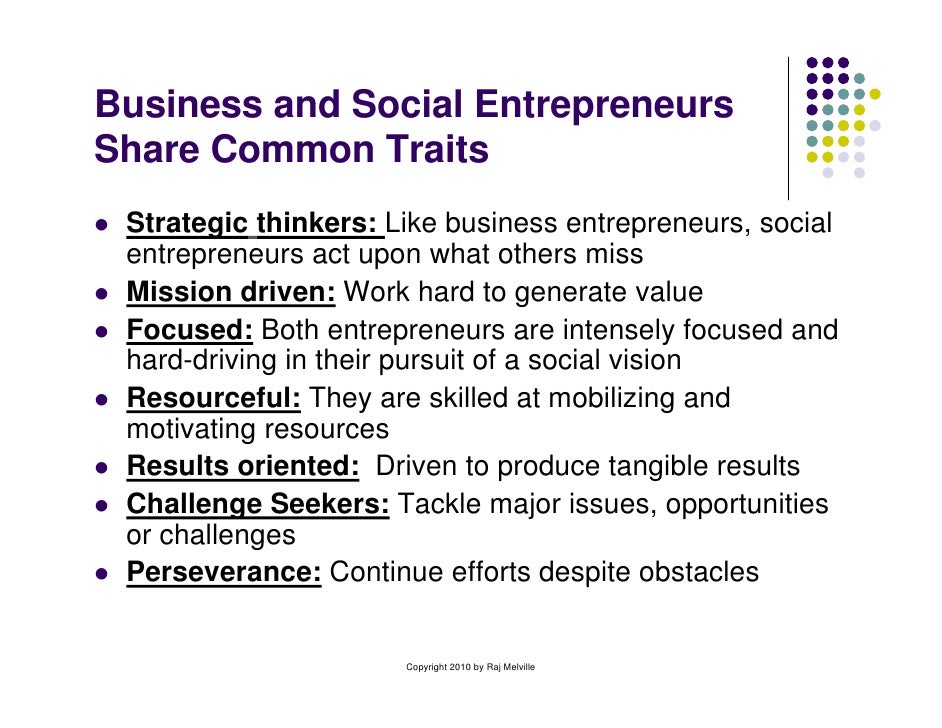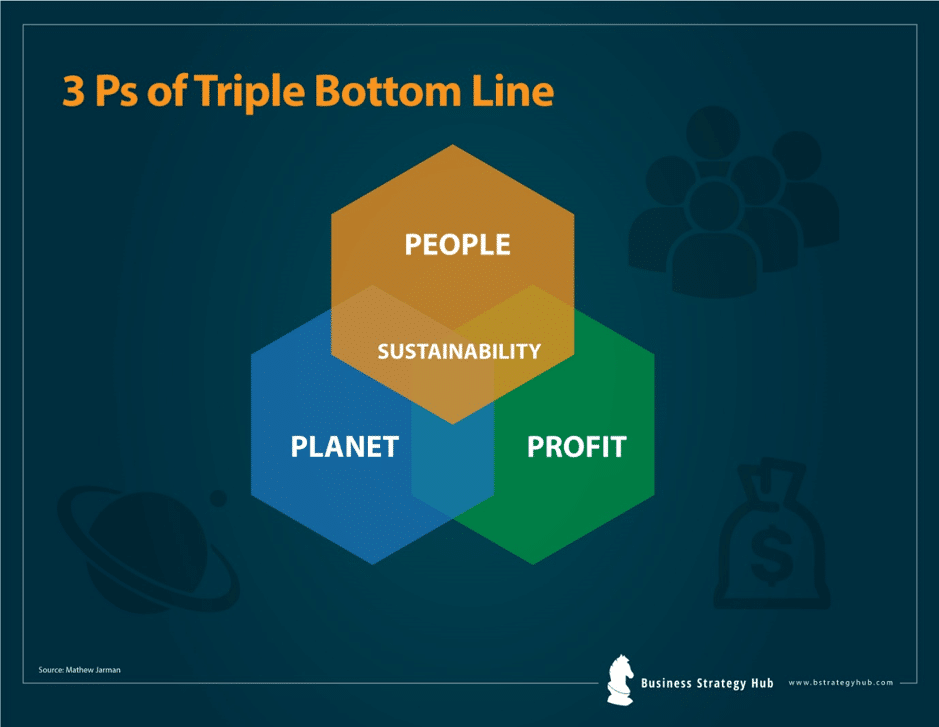Social Entrepreneurship Presentation
| Introduction to Social Entrepreneurship | ||
|---|---|---|
| Social entrepreneurship is the practice of using business principles to address social and environmental issues. It combines the innovative mindset of an entrepreneur with a focus on creating positive change in society. Social entrepreneurs aim to solve problems, create sustainable solutions, and make a lasting impact. | ||
| 1 | ||
| Characteristics of Social Entrepreneurs | ||
|---|---|---|
| Social entrepreneurs are driven by a strong passion for social justice and a desire to make a difference. They possess a unique ability to identify opportunities and creatively solve complex social problems. Social entrepreneurs are committed to creating sustainable and scalable solutions that benefit communities. | ||
| 2 | ||
| The Triple Bottom Line | ||
|---|---|---|
| Social entrepreneurs focus on the triple bottom line: people, planet, and profit. They aim to generate positive social, environmental, and economic outcomes simultaneously. The triple bottom line approach ensures a holistic and balanced approach to business and impact. | ||
| 3 | ||
| Examples of Social Entrepreneurship | ||
|---|---|---|
| TOMS Shoes: For every pair of shoes sold, TOMS donates a pair to a child in need. Grameen Bank: Provides microloans to empower low-income individuals to start their own businesses. Ashoka: A global network that supports social entrepreneurs and their innovative solutions. | ||
| 4 | ||
| Impact Measurement and Evaluation | ||
|---|---|---|
| Social entrepreneurs utilize impact measurement tools to assess and evaluate the effectiveness of their initiatives. They focus on quantifying social impact, such as the number of lives improved or environmental benefits achieved. Evaluation helps social entrepreneurs refine and improve their strategies to maximize their impact. | ||
| 5 | ||
| Challenges Faced by Social Entrepreneurs | ||
|---|---|---|
| Limited access to funding and resources can hinder the growth and scalability of social enterprises. Navigating complex regulatory environments and bureaucracy can be a significant challenge. Balancing financial sustainability with social impact can create tension and require innovative business models. | ||
| 6 | ||
| Collaboration and Partnership | ||
|---|---|---|
| Social entrepreneurs often collaborate with government agencies, nonprofits, and corporations to amplify their impact. Partnerships can provide access to expertise, resources, and networks that help scale their solutions. Collaboration encourages the sharing of knowledge and best practices, fostering a collective approach to social change. | ||
| 7 | ||
| Policy and Advocacy | ||
|---|---|---|
| Social entrepreneurs play a vital role in advocating for policy changes that support their work and address systemic issues. They engage with policymakers and stakeholders to create an enabling environment for social innovation. Policy advocacy helps remove barriers, create incentives, and promote sustainable solutions at a systemic level. | ||
| 8 | ||
| Future Trends in Social Entrepreneurship | ||
|---|---|---|
| Increased focus on technology and digital innovation to address social challenges. Growing interest in impact investing, where financial returns are aligned with positive social and environmental outcomes. Emphasis on diversity, equity, and inclusion to ensure social entrepreneurship represents and serves all communities. | ||
| 9 | ||
| Conclusion | ||
|---|---|---|
| Social entrepreneurship is a powerful approach to tackle social and environmental issues. It combines business acumen with a deep commitment to creating positive change. By harnessing innovation and collaboration, social entrepreneurs can transform lives and build a more sustainable future. | ||
| 10 | ||









